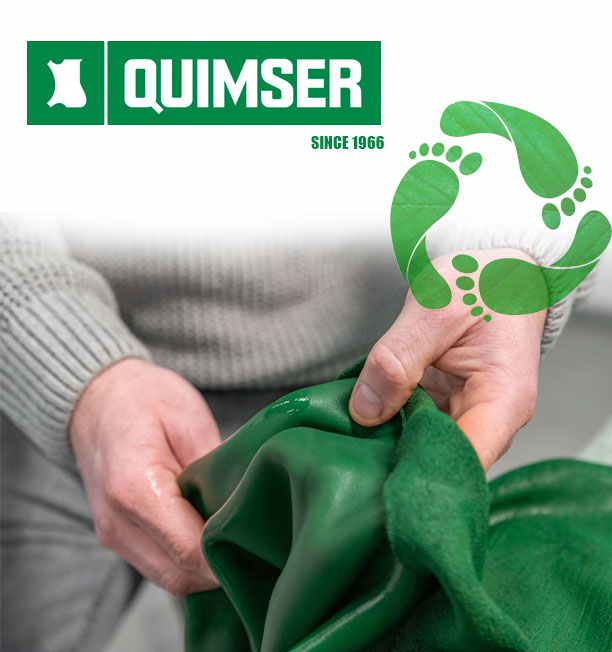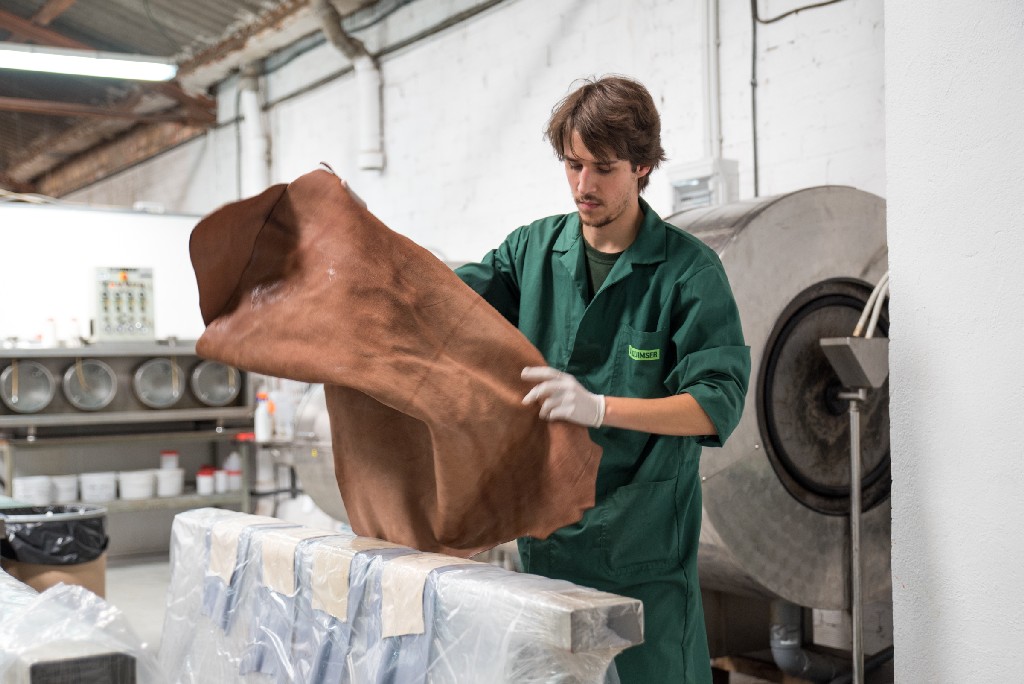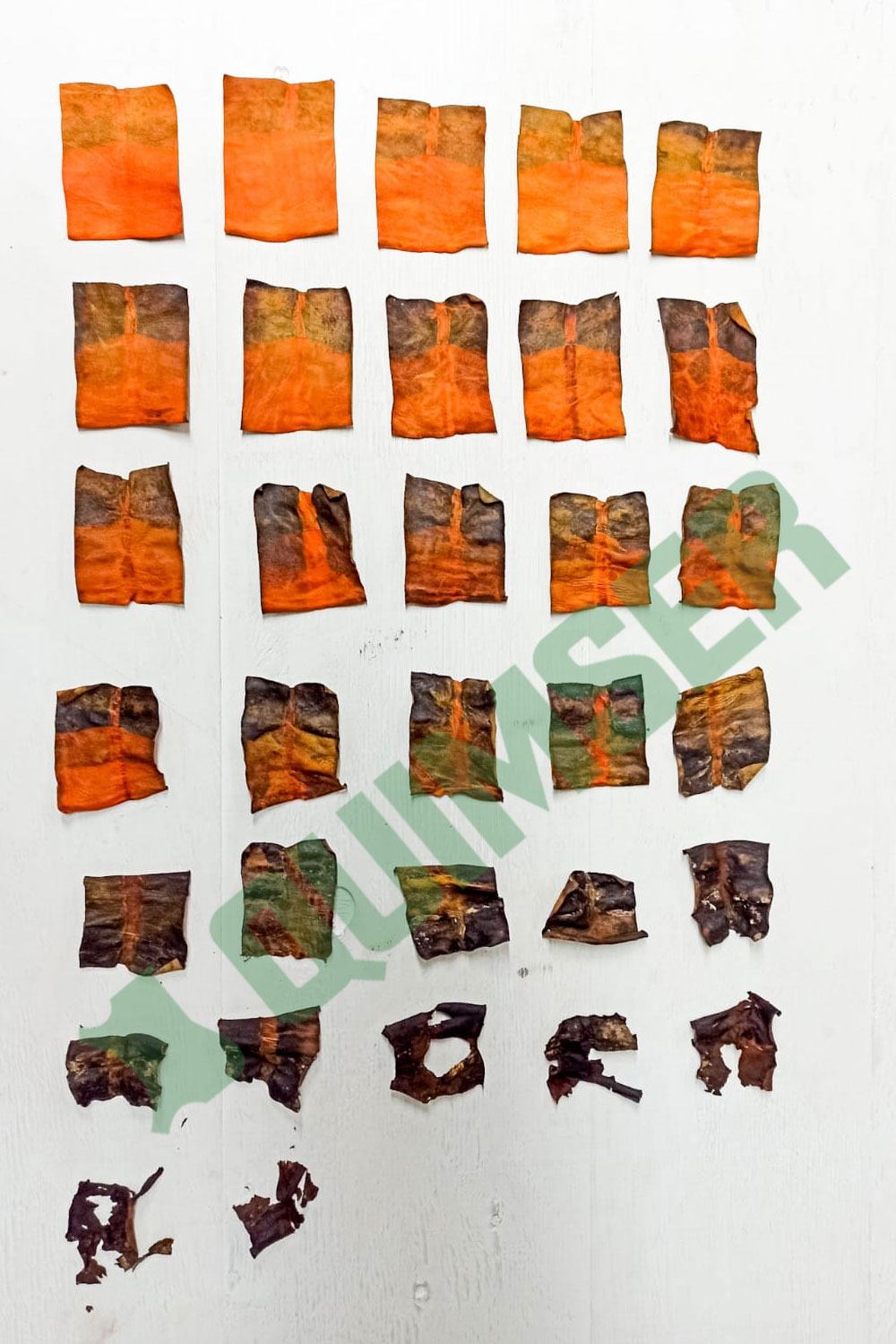For some time, at Quimser we have been studying the impact that animal skin production has on the ecosystem. In recent years we have not only focused on meeting the requirements of a market centered on alleviating the footprint it generates on the environment, but we also offer an extensive range of eco-friendly products with which we develop processes of tanning based on vegetable extracts, biopolymers and natural resins that result in leathers with excellent properties, 100% metal-free. Products that replace chromium, with high fertilizer capacity that offer excellent biodegradability.
Animal skin is one of the earliest and most versatile natural materials in our civilization. Traditionally, the leather industry transforms leather for the manufacture of clothing, upholstery and footwear, among other things. Tanning leather converts natural skins into flexible, non-decaying and durable materials through complex processes that make it more or less resistant to environmental degradation depending on the products used. Is natural leather a problem for the ecosystem?
“Consumers increasingly seek more information about what is behind the items they buy”
Every industrial process has an impact on the environment and the leather tanning sector and auxiliary industry are no exception. Although significant improvements have been made in recent years, the industry has long been in the spotlight for the use of chromium and other metals as tanning agents. Despite the development of processes that greatly minimize the environmental impact and the rigorous controls to which the sector is subjected, there is still much work to be done. Furthermore, consumers have more information about what is behind the items they buy. It is not surprising then that more and more manufacturers are looking for alternatives to standard processes and opting for more sustainable solutions.
Are components used in “vegan leather” detrimental in the fight against plastic?
When a product or a material is said to be biodegradable, it means that it can decompose naturally and ecologically in a relatively short period of time. In this way, it does not pollute the environment and can even transform into fertilizer for the soil. Increasingly, the leather sector is looking for tanned leather free of metals (chromium / aluminium) and of good biodegradability to reduce or eliminate the polluting effects that the residue generates. Efforts are also being undertaken to develop processes that reduce the consumption of water, electricity and timeframe, and to ensure that the chemicals used do not cause negative environmental impacts. Poor management of resources and lack of facilities such as sewage treatment plants are the cause of pollution in many natural areas. In recent years the consumption of leather has declined to be replaced by other materials. One such substitute is “synthetic leather” or “vegan leather”, which is gaining value in the market due to its price and the ethical consideration of its non-animal origin. However, is “vegan leather” the solution?
“Vegan leather” is usually made from fabrics, plastics and PVC resins, all being materials that take a long time to biodegrade. Even though “vegan leather” is not linked to the livestock sector and is not derived from animals, some consumers are wary of products made from this type of material, as the components from which they are made are detrimental in the fight against plastic. In addition to this, the materials used to make “vegan leather” products should be organic, chemical-free and biodegradable. Other factors are considered such as the origin of the raw material, which should be as local as possible and the production of articles should be carried out under ethical and sanitary conditions.
“Quimser has strived to comply with the requirements of a market increasingly focused on mitigating the impact it has on the environment”
The world is changing and with it the awareness of the footprint we leave on the planet. Right now, the preservation of biodiversity, the mitigation of climate change and respect for the environment are the great challenges of our society. Hence, the importance of ensuring that ours is a committed and environmentally conscious sector. For some years now, Quimser has strived to meet the requirements of a market that is increasingly focused on mitigating the impact on the environment. For this reason it offers a range of “eco-friendly” products from which tanning and re-tanning processes are developed using plant extracts, biopolymers and natural resins that result in leathers with excellent properties and 100% free of metals. Products that replace chromium, have a high tanning capacity and offer excellent biodegradability.
“Under specific humidity and temperature conditions and in an environment with microorganisms that facilitate decomposition, Quimser’s tests show that leather waste can disappear”
In parallel, Quimser performs tests in its laboratories with different skin samples to assess the degree of compostability and biodegradability of leather items once they become waste, determining which products and processes are more sustainable for the environment. The results have shown to be very favourable. Under specific humidity and temperature conditions and in an environment with microorganisms that facilitate decomposition, tests show that leather waste can disappear in just over two months.
We have also received various certifications, which guarantee good practice in the production of chemicals including; REACH registration, compliance with ISO regulations and forming part of the Leather Working Group, a group of brands, retailers, product manufacturers, chemical suppliers and technical experts that have worked together to develop an environmental stewardship protocol specifically for the leather manufacturing industry. Quimser offers a specialized technical service to give support and advise to all professionals that aspire to go one step further and take their products to the next level of commitment to the market and to the planet.
It is evident that the market is increasingly aware of the need to adapt to a world that is mindful of the environment and the impact that both large and small producers have on it. Quimser works every day to meet these needs and provide alternatives to a constantly evolving industry.
Quimser is committed to this ecological change in the sector and is convinced that, working together, we can revalue leather.
In relation to this, the Confederation of National Tanners Associations of the European Community (Cotance) has published an interesting study analysing the properties of different alternative leather materials. (Click here to access the article)



